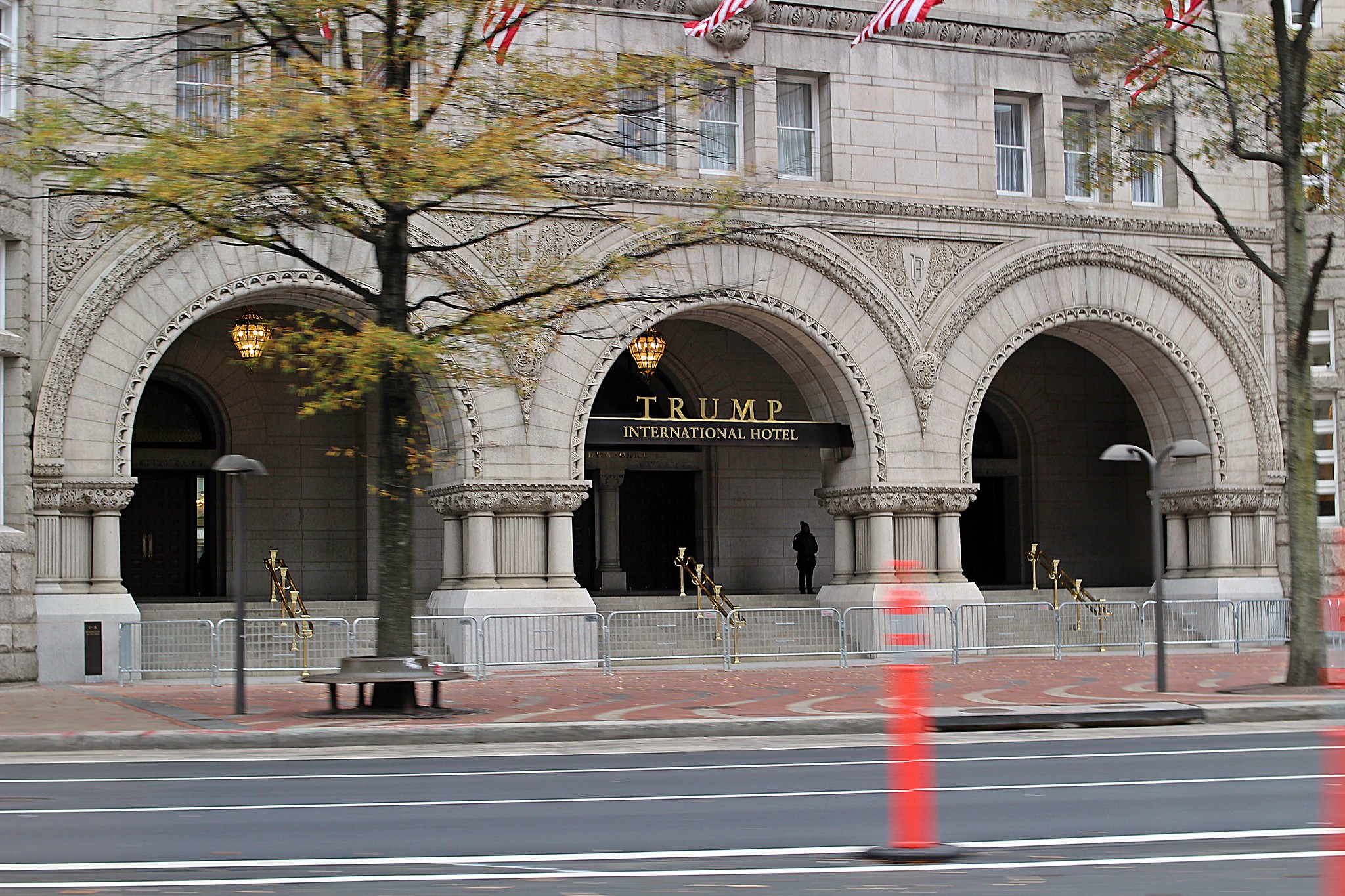RCFP, Fix the Court urge Fourth Circuit to provide live audio of arguments in Trump ‘Emoluments’ cases

Update (Dec. 6, 2019): On Wednesday, Dec. 4, RCFP and Fix the Court were notified that the U.S. Court of Appeals for the Fourth Circuit agreed to allow live-streamed audio of the rehearing in both In re: Donald J. Trump and District of Columbia v. Trump. The argument is scheduled for 9 a.m. on Dec. 12 and will be live-streamed via C-SPAN’s website.
The Reporters Committee for Freedom of the Press and Fix the Court are urging the U.S. Court of Appeals for the Fourth Circuit to livestream audio of oral arguments in a rehearing of two high-profile cases in which President Trump is accused of violating a provision in the Constitution that prohibits the president from accepting gifts from foreign or domestic interests.
The argument for the rehearing of the “Emoluments Clause” cases is scheduled for Dec. 12.
In a letter sent to the court on Nov. 22, the news media coalition argues that the court should provide a live audio feed of the oral argument in both In re: Donald Trump and District of Columbia v. Trump because the cases are of “great public interest for Americans from coast to coast and at all points of the political spectrum.”
It would be “entirely impractical” for most Americans to attend oral arguments. Providing a live audio feed would help Americans follow the cases as contemporaneously as possible, the Reporters Committee and Fix the Court argue.
On Oct. 15, the Fourth Circuit agreed to a hearing before a full panel of judges in both cases surrounding the Emoluments Clause. Judges Paul V. Niemeyer, A. Marvin Quattlebaum Jr., and Senior Judge Dennis W. Shedd unanimously held in July that both Maryland and Washington, D.C., had no standing to sue over money collected from foreign officials for stays at Trump’s Washington, D.C., hotel and dismissed the suit.
Both Maryland and Washington, D.C., alleged that Trump violated the Foreign and Domestic Emoluments Clauses of the U.S. Constitution. The Foreign Emoluments Clause states that no officer of the United States shall accept any “present, Emolument, Office, or Title … from any King, Prince, or foreign State.” The Domestic Emoluments Clause states that the president shall receive compensation for his services but not “any other Emolument” from the United States or any state.
The Reporters Committee has previously worked on expanding court access with Fix the Court, a nonprofit that advocates for greater access to the federal courts. Most recently, the U.S. Court of Appeals for the Second Circuit provided a live audio feed in response to our efforts in Trump v. Vance, a case concerning whether the president may shield his tax returns from Manhattan prosecutors. In addition, lower federal courts have taken steps to open their proceedings to both audio and video broadcasts.
All 13 federal appeals courts allow for some form of audio broadcast of arguments, either in real-time or with a slight delay. The Fourth Circuit already has an existing next-day audio policy for oral arguments.
Read the full letter submitted to the Fourth Circuit.
The Reporters Committee regularly files friend-of-the-court briefs and its attorneys represent journalists and news organizations pro bono in court cases that involve First Amendment freedoms, the newsgathering rights of journalists and access to public information. Stay up-to-date on our work by signing up for our monthly newsletter and following us on Twitter or Instagram.
Photo by Ian Morton